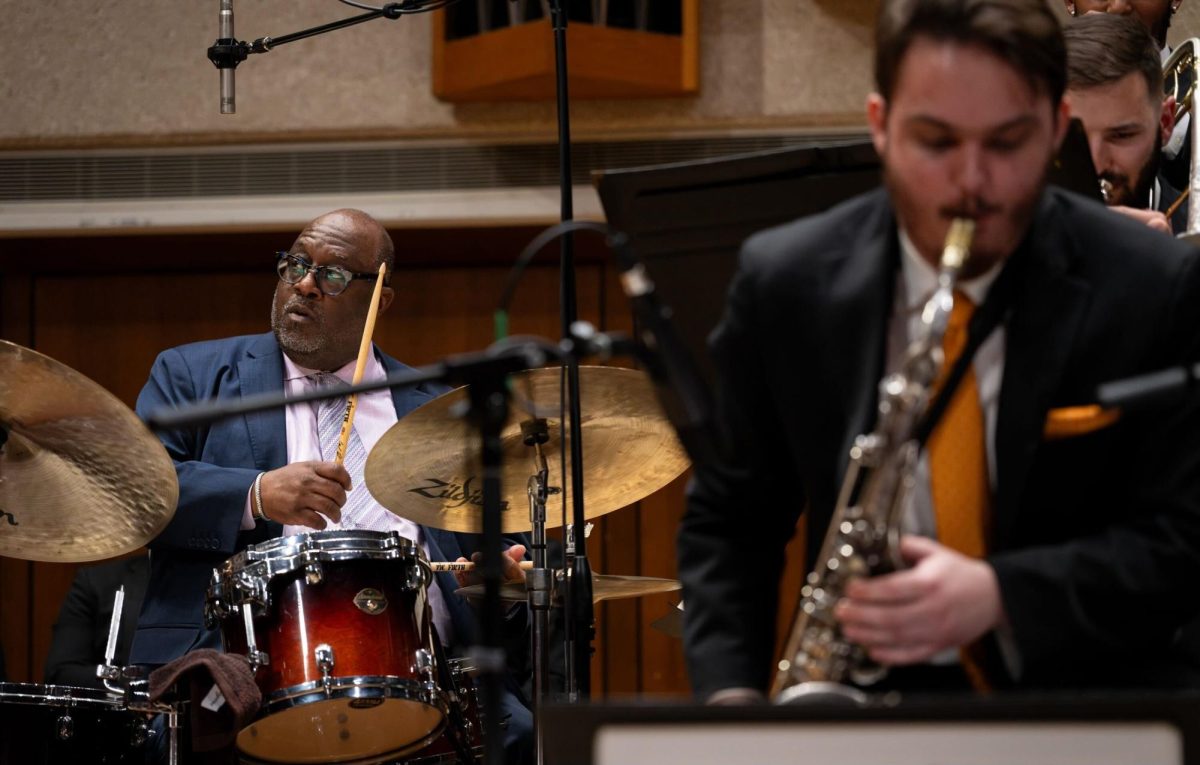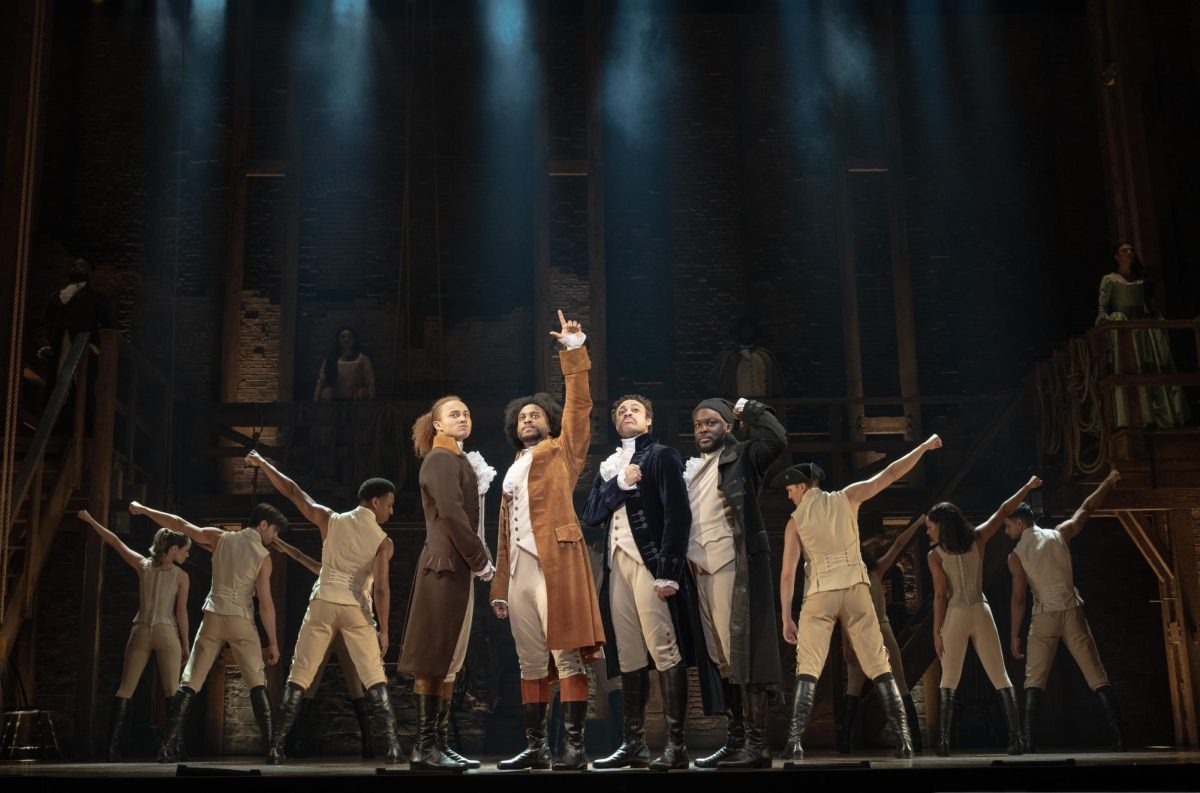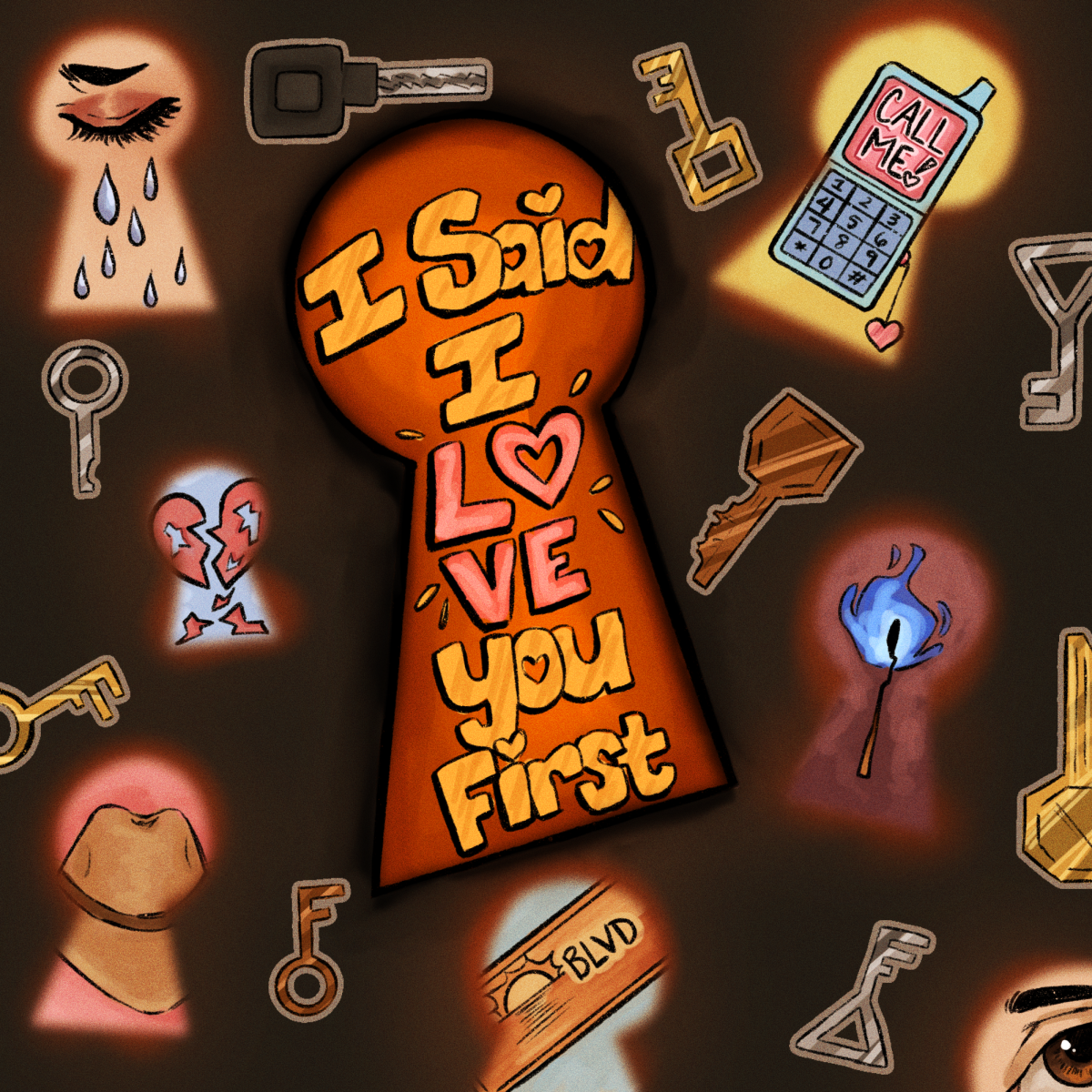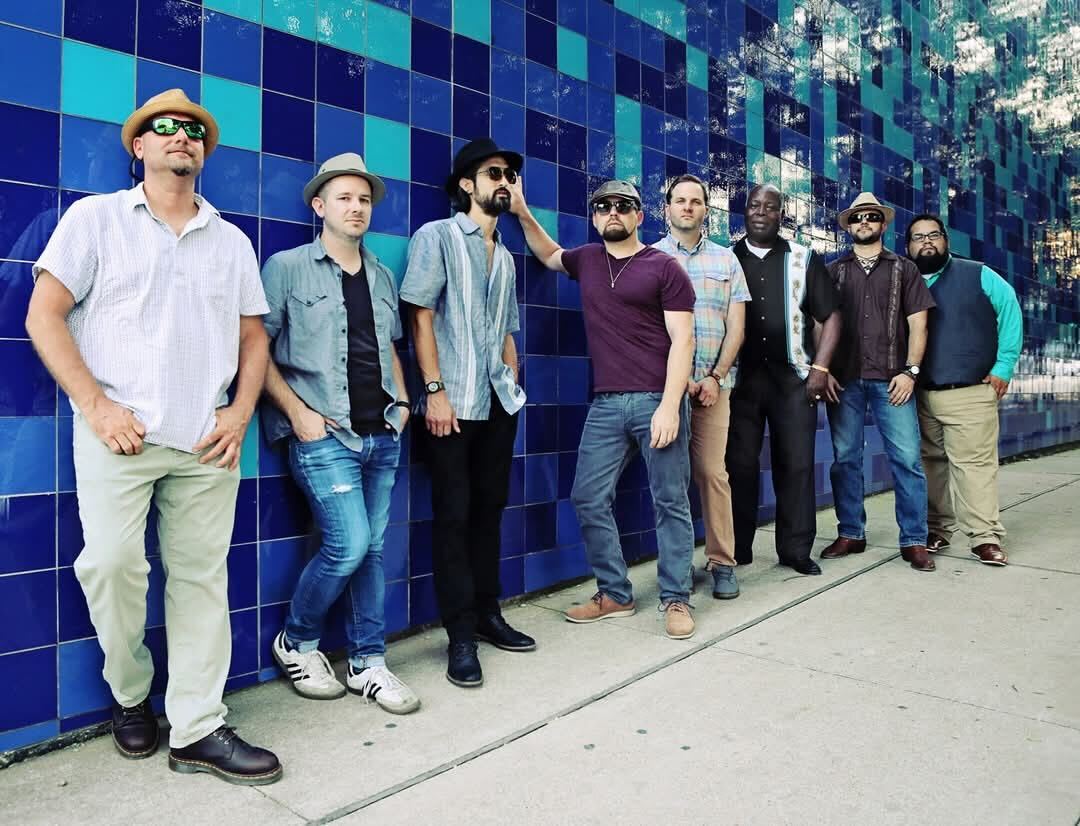This past Friday, the UT jazz orchestras shared the stage with legendary jazz drummer, Carl Allen. With the concert and two masterclasses, Allen left the students with an incentive to strive for greatness.
With a prolific career recording alongside Benny Golson, Mulgrew Miller, Rodney Whitaker and Freddie Hubbard, Allen holds credentials in both performance and education, having also been a director at Juilliard and current educator at the University of Missouri-Kansas City. The jazz studies department welcomed the musical legend with open arms.
“(Allen) serves the music in a very meaningful way, as a musician and as an educator,” Diego Rivera, the director of jazz studies and associate professor of jazz saxophone and jazz studies, said. “Innovation in jazz only comes through the tradition. That’s why we bring in somebody like Allen to perform with us — because he is part of that tradition. He has that connection to the lineage … and has also been a contributor to that lineage. So it’s bridging a very important gap for our students.”
Rivera brings in guest artists that leave lasting effects on his students’ musicianship and said he wants his students to take in everything they can from Allen.
“You get around somebody that has a wealth of knowledge and wealth of experience, and you study under them,” said Rivera “You learn from them, take advice, take criticism, take praise, take everything … and it shows you that there are additional levels of musicianship out there.”
Jaylon Alley, jazz drum set performance freshman, said Allen discussed the materials needed to take the music seriously. The eye-opening experience and exposure of getting to see how a drummer on the next level plays left Alley motivated.
“His words inspired me to kind of up the ante a little bit,” said Alley. “He played with some of the greats and some of the greats were his mentors so he has that knowledge that they gave him to pass along to us.”
Allen said mentorship proves an investment essential for students, passing down important teachings such as respect and humility.
“The apprenticeship thing is really important because one of the things that helped us develop was that we had people who were better than us that we were able to play with,” Allen said. “Mentorship gives us access. It gives us the opportunity to be in the room … with people who can impart information that will change you.”
To make a bigger impact, Allen said he veered away from doing single-day visits with students. He also said he keeps his lesson plan flexible to cater to students and make his lessons more personal.
“When you’re there for two, three, four days, you get the chance to see the students in different settings and they become more comfortable,” Allen said. “You can spend time joking with them or hanging (out).”
Mixed with nerves and excitement, jazz performance graduate Christian Torres said he was determined to play his best alongside Allen and enjoyed the experience because of Allen’s personability which differs from other clinicians. Allen’s masterclass taught him the importance of paying dues in the jazz community.
“Overall, (Allen’s) concert, his playing, learning from him, and getting to be around him and hear his stories has inspired all of us,” Torres said. “I felt really excited. Getting to not only share the stage with someone like Mr. Allen, but getting to hear and experience firsthand that level of musicianship was incredibly inspiring. … He made me realize that there’s more I can be doing.”














